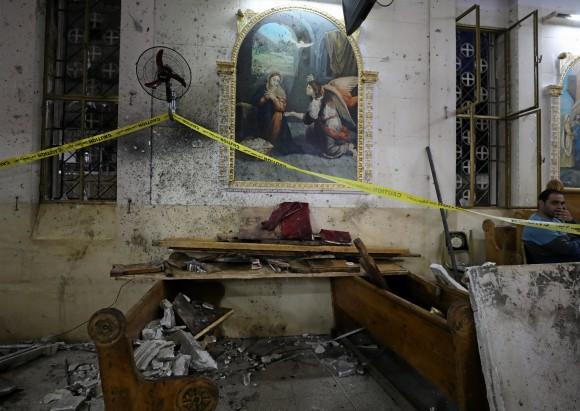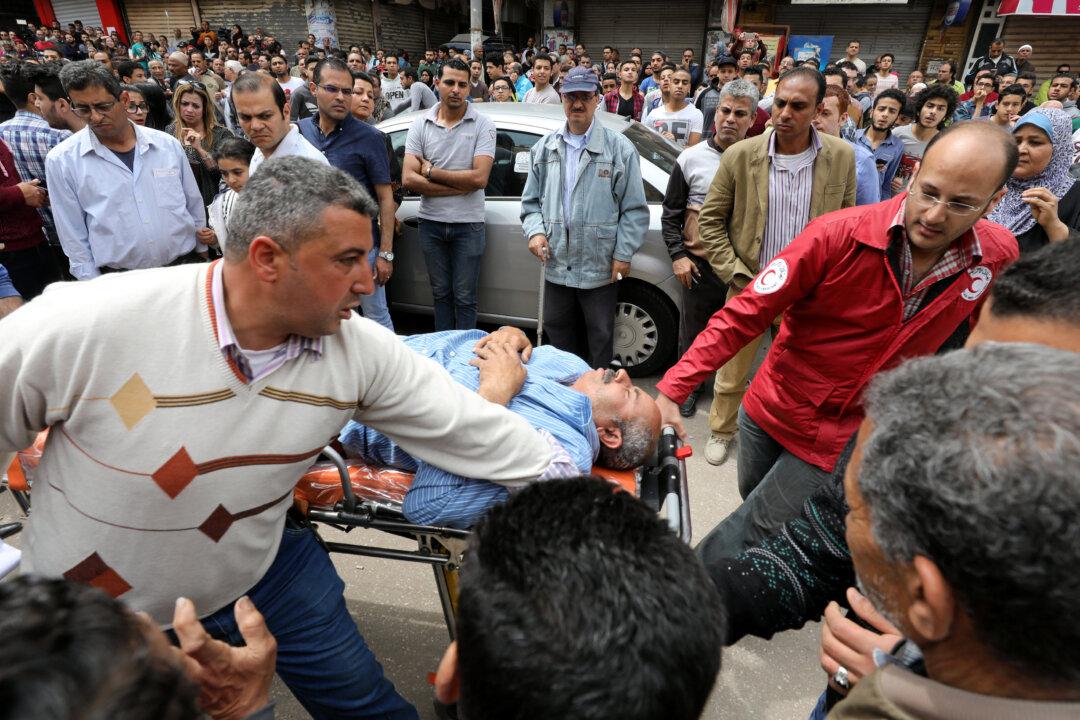TANTA, Egypt/CAIRO—At least 44 people were killed in bomb attacks on the symbolic cathedral seat of the Coptic Pope and another church on Palm Sunday, prompting anger and fear among Christians and troop deployments across Egypt.
The ISIS terrorist group claimed responsibility for the attacks, which also injured more than 100 people and occurred a week before Coptic Easter, with Pope Francis scheduled to visit Egypt later this month.
The assault is the latest on a religious minority increasingly targeted by Islamic terrorists, and a challenge to President Abdel Fattah al-Sisi, who has pledged to protect them as part of his campaign against extremism.

The aftermath of an explosion that took place at a Coptic church on Sunday in Tanta, Egypt, April 9, 2017. REUTERS/Mohamed Abd El Ghany





